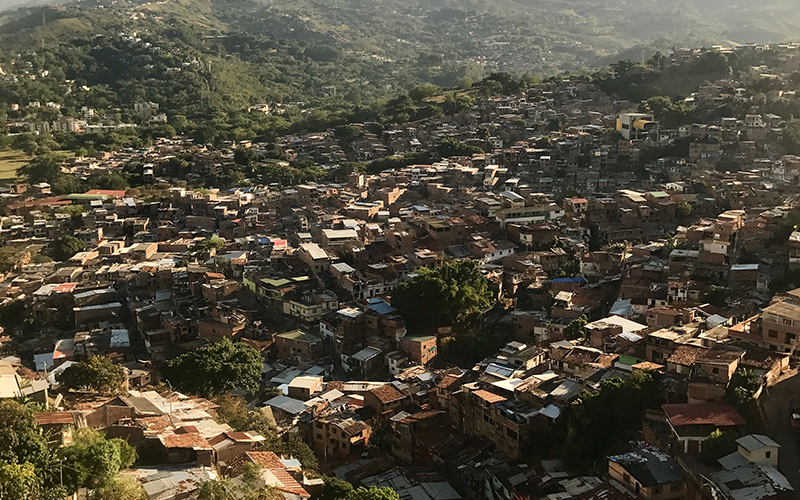Gridding Equitable Urban Futures in Areas of Transition (GREAT) in Cali, Colombia and Havana, Cuba

24 November 2020
Led by Lancaster University, an international interdisciplinary team of researchers in the UK, Colombia and Cuba will seek to transform our understanding of the relationship between off-grid infrastructures and the dynamics of growth and change of informal settlements in areas of transition. Working closely with communities from two informal settlements, this 3-year UKRI-GCRF project will contribute to 'gridding' equitable urban futures in Cali, Colombia and Havana, Cuba. Through a series of three thematic publicLabs on policy and urban planning, transport and mobility, and waste management the project will combine: fieldwork and related research activities, participatory community workshops, seed-funded projects, and work with local policy and planning authorities as well as charitable organisations in the two cities.
For more information view the project website.
- Objectives
Building on well-developed partnerships and the learning of several RCUK-funded projects, GREAT will generate real change in two informal off-grid settlements in Cali (Colombia) and Havana (Cuba).
Focussing on transport and waste-management community-led projects, the project will contribute to 'grid' equitable urban futures through a series of PublicLabs combining policy and socio-technical entrepreneurship in the two cities.
Joining expertise from the environmental sciences, transport and geomatics engineering. design, urban planning, entrepreneurship and sociology, the project will address key SDGs (5, 6, 9, 10 and 16), by embedding the voice of residents of these settlements into ongoing initiatives such as the Territories of Inclusion and Opportunities in Cali, and the Master Plan for Havana Bay.
In doing so we seek to answer two main questions:1) In what ways does being on- and off-grid provide and opportunity to rethink the relationship between people and urban infrastructure in areas of transition?
2) To what extent to current off-grid policies and initiatives in Cali and Havana contribute to the disenfranchisement or empowerment of residents in informal settlements?
The project will transform our understanding of the relationship between urban infrastructure and the dynamics of growth and change of informal settlements in areas of transition and provide unique learning points to help address important barriers residents of informal settlements face to improve their livelihoods, in Colombia and Cuba, and across Latin America and the Caribbean.
- Partners
UK
Lancaster UniversityColombia
Universidad del Valle
Cuba
Technological University of Havana.Several local partners including Directorates of Transport and Environmental Management, the Cali Mayor’s Office and NGOs will take part in and help shape the main outcomes of the project. Joining the expertise of environmental scientists, transport and geomatics engineers, architects, designers and urban planners, entrepreneurs, historians and sociologists, the project will address key UN sustainable development goals by embedding the voice of settlement residents into ongoing initiatives centred on the social futures of Cali and Havana.
 Close
Close

